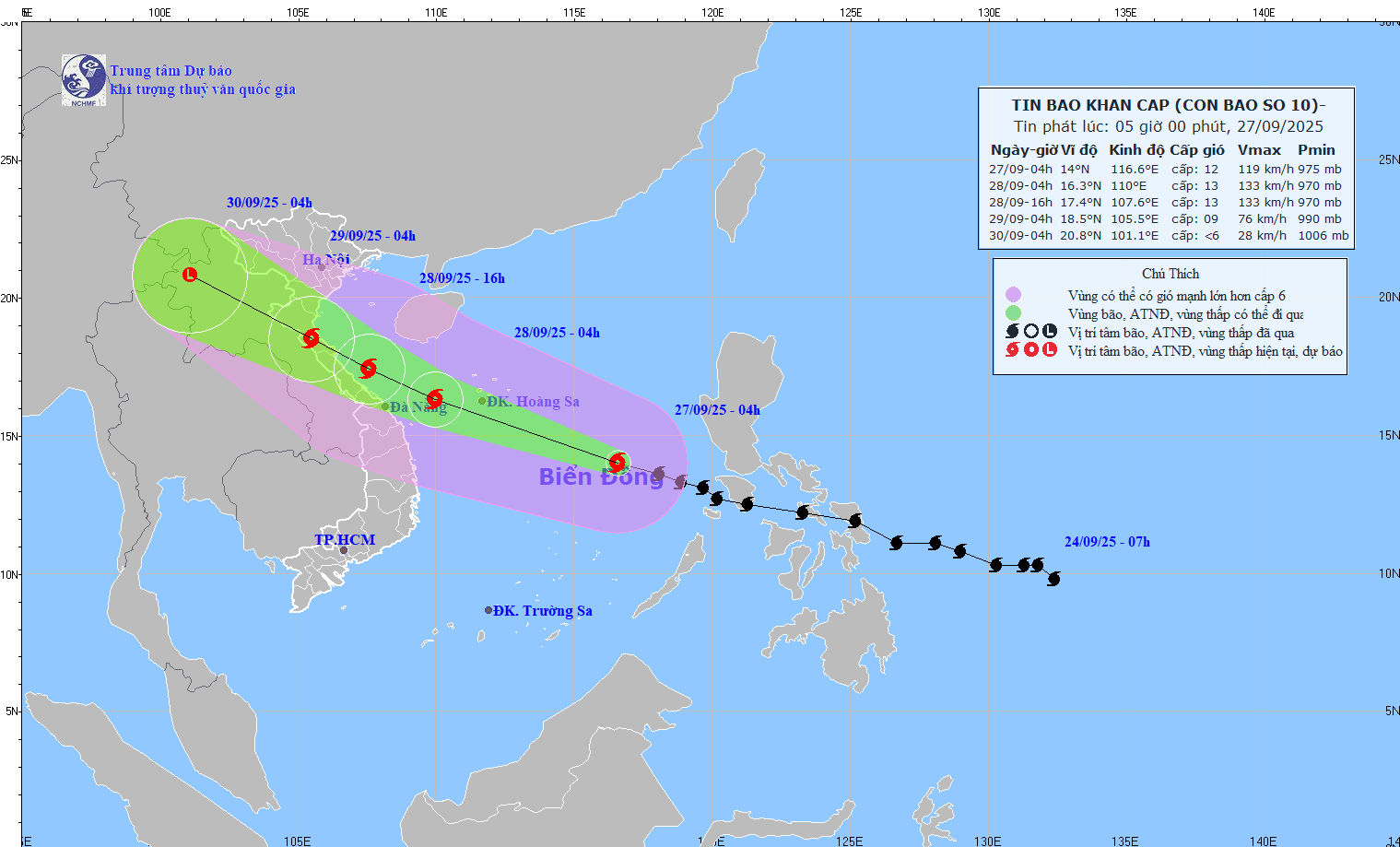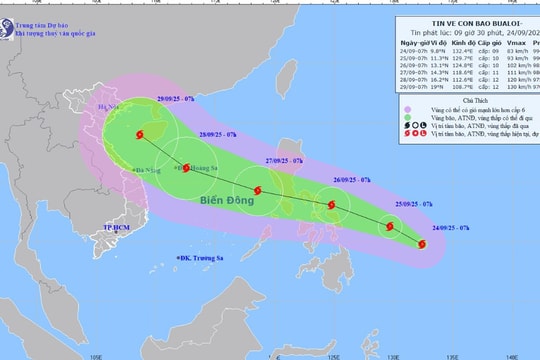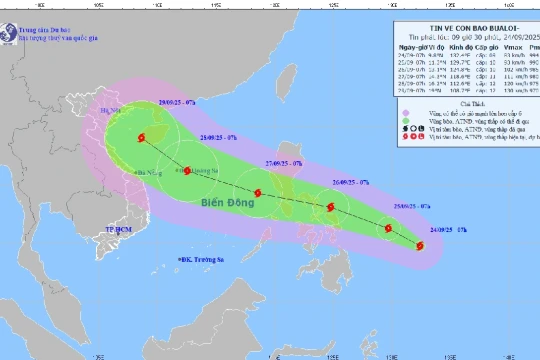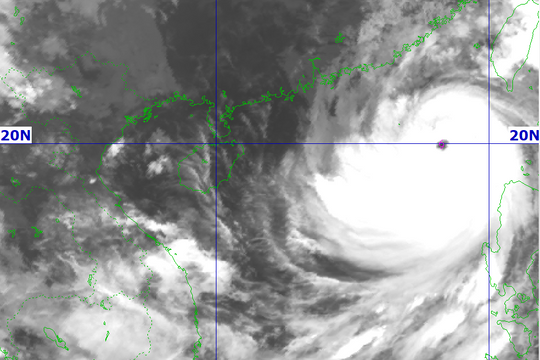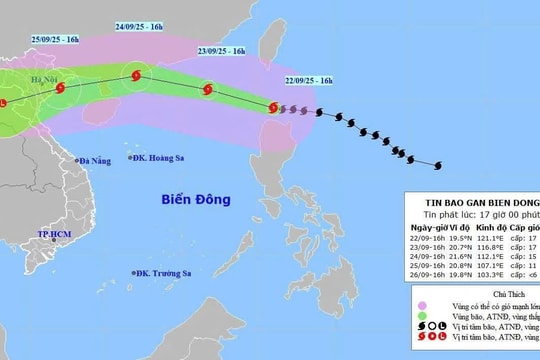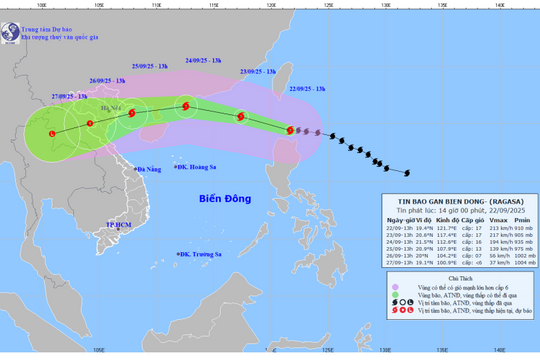Russia has never changed its stance on territorial disputes in the East Sea.
Recently, a number of Vietnamese newspapers have reported and published a number of articles commenting on Russia's views on the situation in the East Sea, such as "Russia causes "shock" by declaring not to get involved in disputes in the East Sea" and "Russia issues new statement on the East Sea"..
 |
| Colonel Le The Mau |
Originated from a "shocking" article
Recently, a number of Vietnamese newspapers have reported and published a number of articles commenting on Russia's views on the situation in the East Sea, such as "Russia causes "shock" by declaring not to get involved in disputes in the East Sea (baomoi.com) and "Russia issues new statement on the East Sea" (giaoduc.net.vn).
Notably, Hong Thuy's article titled "Russia issues new statement on the East Sea" in which the author makes a "shocking" observation that Russia "continues to have a tendency to confuse and equate concepts of disputes in the East Sea in order to cover up and absolve China before the Permanent Court of Arbitration (PCA) issues a ruling that China misapplied, misinterpreted and violated the 1982 United Nations Convention on the Law of the Sea (UNCLOS) in the East Sea."
This is a remark that distorts the views of the Russian Foreign Ministry, causing confusion in public opinion and damaging the strategic partnership and comprehensive cooperation between Vietnam and the Russian Federation. Recently, during his official visit to the Russian Federation, our Prime Minister Nguyen Xuan Phuc affirmed: "Personally, I, the leaders and people of Vietnam always have absolute trust in our friendly country Russia."
What is the real problem?
First of all, it must be affirmed that this is not “the latest statement on Russia’s stance on the East Sea issue” as author Hong Thuy commented on giaoduc.net.vn, but only a reaffirmation of Russia’s consistent stance on territorial disputes in the East Sea, given at the press conference of the official representative of the Russian Foreign Ministry M. Zakharova on June 10, 2016, in which the topic of disputes in the East Sea was only a short content among 19 announcements on Russia’s foreign affairs activities in recent days. Why did the Russian Foreign Ministry have to reaffirm this stance in the press conference on June 10, 2016?
“Recently, we have noticed media reports, which, citing senior Russian officials, seem to indicate that Russia is increasingly involved in the issue of the situation in the South China Sea. In addition, these reports state that we are inclined to support one of the parties to the territorial dispute in this sea. Therefore, although we have repeatedly touched on this topic, today we would like to make a separate comment on it,” explained the official representative of the Russian Foreign Ministry, M. Zakharova.
Full text of Ms. M. Zakharova's comments on the dispute in the Sea at the press conference on June 10, 2016
For convenience, we would like to translate and re-post the full text of the commentary by the Official Representative of the Russian Foreign Ministry M. Zakharova on June 10, 2016, taken from the website of the Ministry of Foreign Affairs of the Russian Federation:
“We are closely monitoring developments in the South China Sea. We consider it an important factor affecting security and stability in the entire Asia-Pacific region.
Russia is not one of the parties to the territorial disputes in the South China Sea and will not be drawn into them. In principle, we do not take sides. We believe that the involvement of third parties in these disputes can only aggravate the situation in the region.
All countries involved in territorial disputes in this region must strictly adhere to the principle of non-use of force, and continue to seek ways to resolve outstanding issues through political and diplomatic solutions based on international law, first of all the 1982 United Nations Convention on the Law of the Sea (UNCLOS), in the spirit of the Declaration on the Conduct of Parties in the South China Sea (DOC) that China signed with ASEAN in 2002, as well as the guiding principles for the implementation of the DOC agreed upon by the parties in July 2011. We believe that consultations and negotiations on territorial disputes in the East Sea must be carried out directly between the parties concerned within a reasonable framework determined by the parties themselves.
In light of the situation, the key factor in resolving the conflicts in this sub-region could be the construction of a new security architecture based on collective, non-aligned principles and compliance with international standards. We propose to all partners to actively participate in implementing the initiative put forward by the Russian side on studying and developing principles for strengthening security and developing cooperation in the Asia-Pacific region. For our part, we will continue to support the efforts of China and ASEAN countries to build a Code of Conduct of Parties in the East Sea (COC).
We recommend that when reporting or writing on this topic, we adhere to the basic Russian position, not citing the arguments of this or that author, but proceeding from our own consistent point of view.
 |
| Russian Foreign Ministry spokeswoman Maria Zakharova. |
Comments on the key points of the speech of the Official Representative of the Russian Foreign Ministry
(1) Russia's consistent view that "because it is not one of the parties to the territorial dispute in the East Sea, Russia does not side with any party in this dispute" completely coincides with the views of the US as well as many other countries on the dispute in the East Sea, and has absolutely no intention of supporting China as Beijing intentionally misinterpreted that Russia is on China's side.
(2) Russia's view that "third forces involved in these disputes can only make the situation in this region more tense". Russia's view reflects the fact that, up to now, all negotiations on DOC, or COC, or territorial disputes in the East Sea have only been conducted within the bilateral framework between China and Vietnam and other countries with disputes, or within the ASEAN-China framework.
(3) According to Russia's point of view, "territorial disputes in the East Sea must be resolved on the basis of strict adherence to the principle of non-use of force, through political-diplomatic solutions, based on international law, first of all UNCLOS, in the spirit of the DOC. Russia will continue to support the efforts of China and ASEAN countries to build a Code of Conduct of Parties in the East Sea (COC)". This point of view of Moscow indirectly condemns China because Beijing's actions in building and embellishing the reefs in Truong Sa that they have seized from Vietnam have seriously violated the DOC and UNCLOS. Moreover, when Russia talks about "international law", it does not exclude the ruling of the International Court of Arbitration. Thus, Russia's point of view is completely consistent with the views of ASEAN, Vietnam and the international community. Of course, based on the Russia-China relationship, Moscow only asked “the disputing parties to comply with the DOC and UNCLOS”, without naming China. Similarly, other countries such as the US, Japan, and the EU also only asked “the parties to exercise restraint” and “not change the status quo” in the East Sea, without naming China.
(4) Regarding Russia's new initiative to "build a new security structure in the Asia-Pacific region based on collective, non-aligned principles and compliance with international standards". This initiative was once proposed at the ASEAN-Russia Summit in Sochi on the occasion of the 20th anniversary of the establishment of Russia-ASEAN relations. The reason why this structure must comply with the principles of "collective" and "non-aligned" is to open the door to the participation of all relevant parties to maintain a peaceful environment, sustainable security, cooperation for development in the region, including countries that have participated in military alliances such as the US, Japan, South Korea, the Philippines... This is a good initiative, suitable for the political and security characteristics of this region, meeting the interests of all parties and therefore highly feasible.
Thus, from Russia's consistent viewpoint on territorial disputes in the East Sea, it is impossible for Moscow to "misrepresent and equate the concepts of disputes in the East Sea in order to cover up and absolve China before the Permanent Court of Arbitration (PCA) issues a ruling that China misapplied, misinterpreted and violated the 1982 United Nations Convention on the Law of the Sea (UNCLOS) in the East Sea."
It is difficult to explain the motives of those who, for unknown reasons, deliberately distort and falsify Russia's views on territorial disputes in the East Sea, causing confusion in public opinion, damaging the relationship between the two countries in the context that we are seeking support from the international community, while China is trying to deliberately explain and misapply UNLOS, DOC, as well as deliberately distort and falsify the views of Russia and some other countries in the direction of "supporting Beijing" on the East Sea issue.
I think, at the present time, we need to take advantage of all those who have similar views with Vietnam to form a broad front to support us in the struggle to protect sovereignty and sovereign rights in Hoang Sa and Truong Sa in the East Sea - an unequal, long-term, difficult and complicated struggle, and should not take actions that cause division between Vietnam and its friends and partners, of which Russia is a comprehensive strategic partner.
According to Infonet

